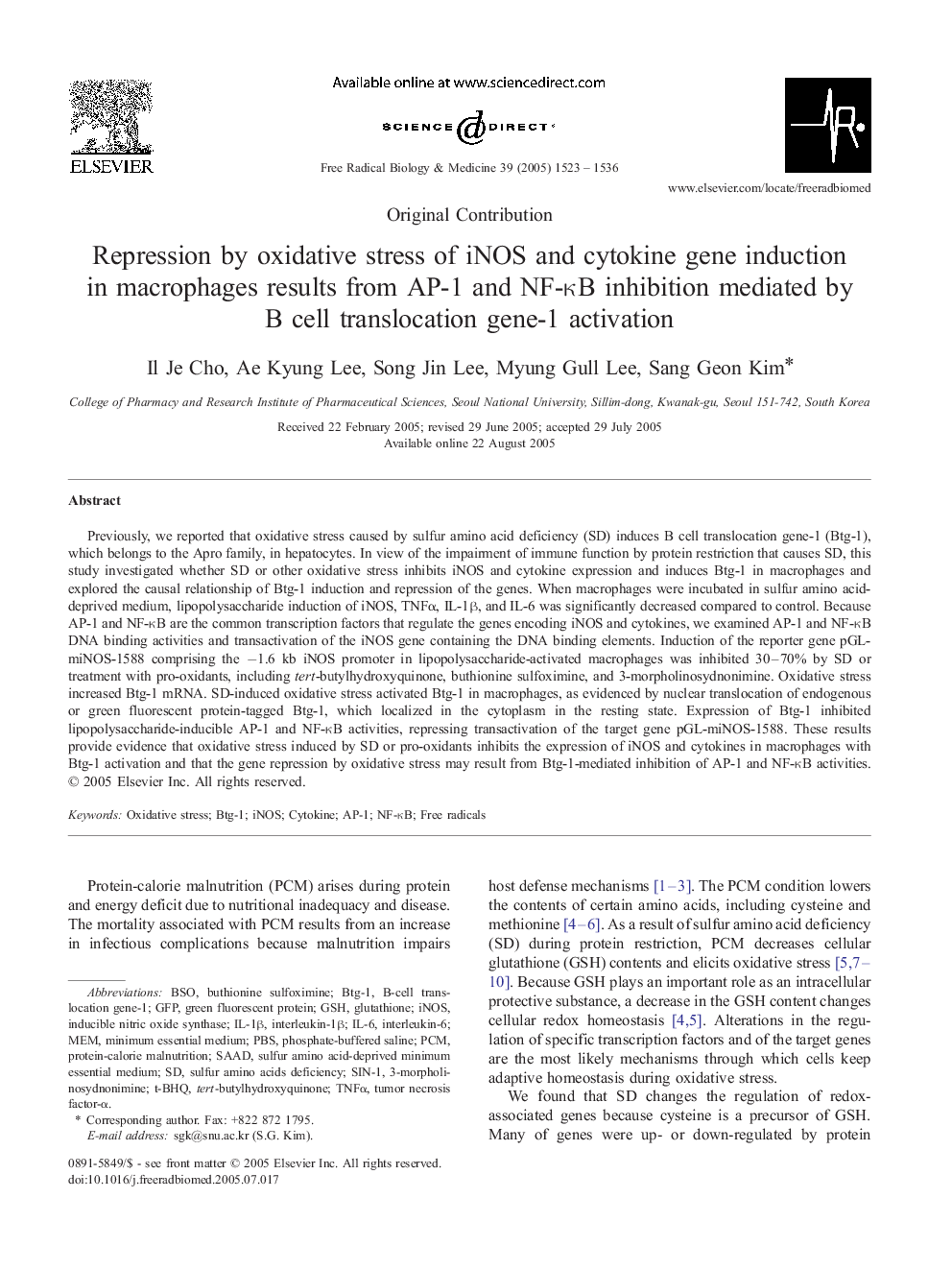| Article ID | Journal | Published Year | Pages | File Type |
|---|---|---|---|---|
| 10738845 | Free Radical Biology and Medicine | 2005 | 14 Pages |
Abstract
Previously, we reported that oxidative stress caused by sulfur amino acid deficiency (SD) induces B cell translocation gene-1 (Btg-1), which belongs to the Apro family, in hepatocytes. In view of the impairment of immune function by protein restriction that causes SD, this study investigated whether SD or other oxidative stress inhibits iNOS and cytokine expression and induces Btg-1 in macrophages and explored the causal relationship of Btg-1 induction and repression of the genes. When macrophages were incubated in sulfur amino acid-deprived medium, lipopolysaccharide induction of iNOS, TNFα, IL-1β, and IL-6 was significantly decreased compared to control. Because AP-1 and NF-κB are the common transcription factors that regulate the genes encoding iNOS and cytokines, we examined AP-1 and NF-κB DNA binding activities and transactivation of the iNOS gene containing the DNA binding elements. Induction of the reporter gene pGL-miNOS-1588 comprising the â1.6 kb iNOS promoter in lipopolysaccharide-activated macrophages was inhibited 30-70% by SD or treatment with pro-oxidants, including tert-butylhydroxyquinone, buthionine sulfoximine, and 3-morpholinosydnonimine. Oxidative stress increased Btg-1 mRNA. SD-induced oxidative stress activated Btg-1 in macrophages, as evidenced by nuclear translocation of endogenous or green fluorescent protein-tagged Btg-1, which localized in the cytoplasm in the resting state. Expression of Btg-1 inhibited lipopolysaccharide-inducible AP-1 and NF-κB activities, repressing transactivation of the target gene pGL-miNOS-1588. These results provide evidence that oxidative stress induced by SD or pro-oxidants inhibits the expression of iNOS and cytokines in macrophages with Btg-1 activation and that the gene repression by oxidative stress may result from Btg-1-mediated inhibition of AP-1 and NF-κB activities.
Keywords
iNOSt-BHQSIN-1BSOAP-1IL-1βNF-κBGSHGFPPBSPCMTNFαIL-63-morpholinosydnonimineinterleukin-6Interleukin-1βbuthionine sulfoximineOxidative stresstumor necrosis factor-αminimum essential mediumFree radicalsinducible nitric oxide synthaseCytokineMEMPhosphate-buffered salinegreen fluorescent proteinProtein-calorie malnutritionGlutathione
Related Topics
Life Sciences
Biochemistry, Genetics and Molecular Biology
Ageing
Authors
Il Je Cho, Ae Kyung Lee, Song Jin Lee, Myung Gull Lee, Sang Geon Kim,
